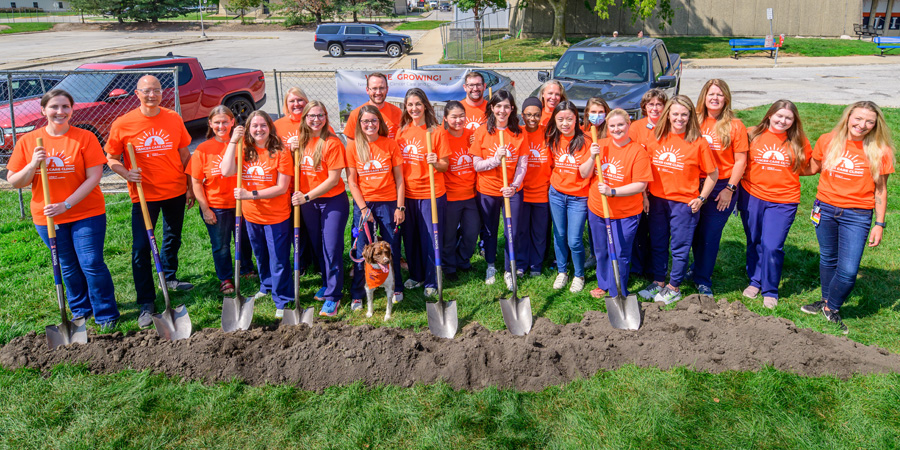This message will appear in the February 2019 issue of the Chicago Veterinary Medical Association Bulletin.
How to Crack the Veterinary Job Market
Last October we held a job fair in conjunction with the college’s annual Fall Conference. The energy was high in our new i-Flex classroom as more than 30 employers interacted with current Illinois veterinary students.
If you haven’t been keeping tabs on the veterinary job market, you might be surprised to learn that the students were interviewing the practices, not vice versa.
If you are currently seeking a new associate, you already knew that veterinary jobs are more plentiful than job seekers. Practices from every corner of Illinois and beyond have contacted us hoping to find their next team member among our Class of 2019.
In this column, I’ve asked Dr. Jonathan Foreman, associate dean for academic and student affairs, and Dr. Larry Firkins, associate dean for public engagement, to share some of their insights for prospective employers.
It’s the Economy
“When the economy is good, our students have job offers of 2:1—that is, two offers per student—in April before graduation,” says Dr. Foreman, whose office surveys graduating students. “When the economy tanked 10 years ago, only 56% of senior students had hiring commitments in April, whereas previously and subsequently, over 90% do.”
Looking at this another way, it’s because all of you are doing well that the demand for new associates is high.
It’s Geography
Dr. Firkins, with his ties to food animal practices, says he most frequently hears from practitioners in central and southern Illinois who are having difficulty attracting graduates to their locations.
“There is a strong pull back to the Chicago area when it comes to seeking employment,” he notes. At the same time, he acknowledges that graduates are often at a point in their lives when they want to explore new horizons.
According to Dr. Foreman’s data, about 55% of senior students plan to stay in Illinois after graduation.
It’s the Experience
Some graduates elect to do internships rather than enter an associate position, thus opting out of the job market. “Anyone considering a residency in the future is more likely to do an internship, as internships are often seen as a prerequisite or pathway to residencies,” says Dr. Foreman.
He adds: “Equine practices often hire as associates those who have already done internships, but rarely hire recent graduates as associates.”
What We Are Doing
At the College of Veterinary Medicine, we are continually refining our curriculum and experiences for students to ensure that an Illinois DVM is a preferred credential in the marketplace, even when the economy shifts to favor employers.
Under the leadership of president Dr. Chris Dupuis, our alumni association is forging connections between students and practitioners, for example, through the job fair.
At the 2019 Fall Conference, both the job fair and the highly successful pre-conference session on “Becoming an Employer of Choice” will again be offered. There’s also a free online job board hosted by the college.
What You Can Do
Dr. Firkins, who teaches a four-year business track for veterinary students, led the “employer of choice” sessions. (He also happens to be an international consultant on personnel management for the swine industry.)
One of his key recommendations: Get students into your practice well before you plan to hire them.
“I encourage clinics to formalize summer externship programs for students after their first and second years,” he says. He is helping several practitioners who attended his session last fall develop learning objectives for these externships. If you’d like a copy, you can email him at firkins@illinois.edu.
And of course we hope you’ll take advantage of the alumni events and Fall Conference sessions designed to assist you in hiring your next associate. Mark your calendars now for Fall Conference, September 18 to 20.

![[student at 2018 job fair]](https://vetmed.illinois.edu/wp-content/uploads/2021/04/dean-cvma-job-fair.jpg)


